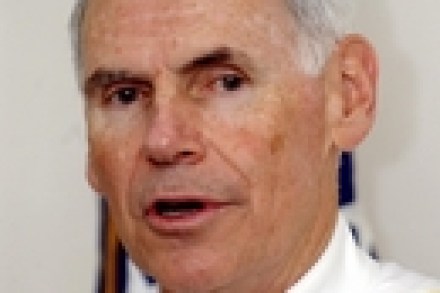US CentCom Commander resigns
Admiral William Fallon has resigned as CentCom commander over a magazine profile–that he cooperated with–that pitted him against the White House’s hawkish Iran rhetoric. In a statement, Fallon said: “Recent press reports suggesting a disconnect between my views and the president’s policy objectives have become a distraction at a critical time and hamper efforts in the Centcom region. And although I don’t believe there have ever been any differences about the objectives of our policy in the Central Command area of responsibility, the simple perception that there is makes it difficult for me to effectively serve America’s interests there”. Fallon’s resignation is bound to set off a wave of speculation













